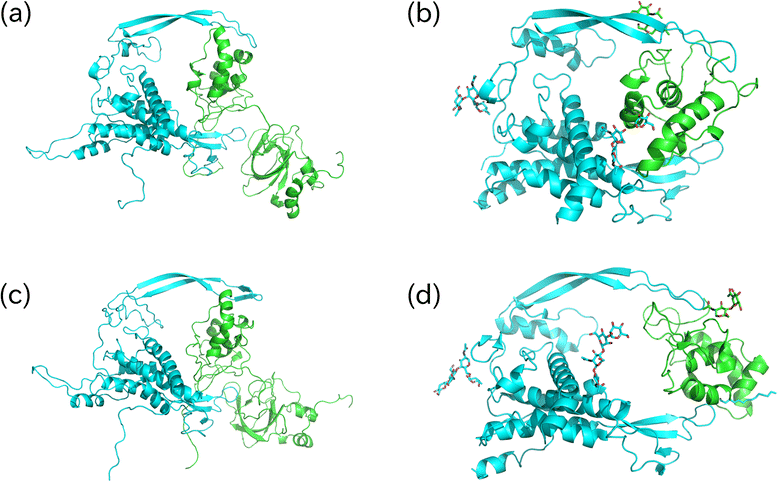SFRP1 is a possible candidate for epigenetic therapy in non-small cell lung cancer
- PMID: 27534621
- PMCID: PMC4989892
- DOI: 10.1186/s12920-016-0196-3
SFRP1 is a possible candidate for epigenetic therapy in non-small cell lung cancer
Abstract
Background: Non-small cell lung cancer (NSCLC) remains a lethal disease despite many proposed treatments. Recent studies have indicated that epigenetic therapy, which targets epigenetic effects, might be a new therapeutic methodology for NSCLC. However, it is not clear which objects (e.g., genes) this treatment specifically targets. Secreted frizzled-related proteins (SFRPs) are promising candidates for epigenetic therapy in many cancers, but there have been no reports of SFRPs targeted by epigenetic therapy for NSCLC.
Methods: This study performed a meta-analysis of reprogrammed NSCLC cell lines instead of the direct examination of epigenetic therapy treatment to identify epigenetic therapy targets. In addition, mRNA expression/promoter methylation profiles were processed by recently proposed principal component analysis based unsupervised feature extraction and categorical regression analysis based feature extraction.
Results: The Wnt/β-catenin signalling pathway was extensively enriched among 32 genes identified by feature extraction. Among the genes identified, SFRP1 was specifically indicated to target β-catenin, and thus might be targeted by epigenetic therapy in NSCLC cell lines. A histone deacetylase inhibitor might reactivate SFRP1 based upon the re-analysis of a public domain data set. Numerical computation validated the binding of SFRP1 to WNT1 to suppress Wnt signalling pathway activation in NSCLC.
Conclusions: The meta-analysis of reprogrammed NSCLC cell lines identified SFRP1 as a promising target of epigenetic therapy for NSCLC.
Figures



Similar articles
-
Transcriptional inactivation of secreted frizzled-related protein 1 by promoter hypermethylation as a potential biomarker for non-small cell lung cancer.Neoplasma. 2010;57(3):228-33. doi: 10.4149/neo_2010_03_228. Neoplasma. 2010. PMID: 20353273
-
Change in gene expression profiles of secreted frizzled-related proteins (SFRPs) by sodium butyrate in gastric cancers: induction of promoter demethylation and histone modification causing inhibition of Wnt signaling.Int J Oncol. 2012 May;40(5):1533-42. doi: 10.3892/ijo.2012.1327. Epub 2012 Jan 10. Int J Oncol. 2012. PMID: 22246241
-
Epigenetic silencing of SFRP1 and SFRP5 by hepatitis B virus X protein enhances hepatoma cell tumorigenicity through Wnt signaling pathway.Int J Cancer. 2014 Aug 1;135(3):635-46. doi: 10.1002/ijc.28697. Epub 2014 Jan 13. Int J Cancer. 2014. PMID: 24374650
-
Wnt signaling pathway in non-small cell lung cancer.J Natl Cancer Inst. 2014 Jan;106(1):djt356. doi: 10.1093/jnci/djt356. Epub 2013 Dec 5. J Natl Cancer Inst. 2014. PMID: 24309006 Review.
-
Recent advances in epigenomics in NSCLC: real-time detection and therapeutic implications.Epigenomics. 2016 Aug;8(8):1151-67. doi: 10.2217/epi.16.10. Epub 2016 Aug 1. Epigenomics. 2016. PMID: 27479016 Review.
Cited by
-
Xprediction: Explainable EGFR-TKIs response prediction based on drug sensitivity specific gene networks.PLoS One. 2022 May 18;17(5):e0261630. doi: 10.1371/journal.pone.0261630. eCollection 2022. PLoS One. 2022. PMID: 35584089 Free PMC article.
-
PCA-based unsupervised feature extraction for gene expression analysis of COVID-19 patients.Sci Rep. 2021 Aug 30;11(1):17351. doi: 10.1038/s41598-021-95698-w. Sci Rep. 2021. PMID: 34456333 Free PMC article.
-
Prediction and Analysis of Skin Cancer Progression using Genomics Profiles of Patients.Sci Rep. 2019 Oct 31;9(1):15790. doi: 10.1038/s41598-019-52134-4. Sci Rep. 2019. PMID: 31673075 Free PMC article.
-
Tensor Decomposition-Based Unsupervised Feature Extraction Applied to Single-Cell Gene Expression Analysis.Front Genet. 2019 Sep 19;10:864. doi: 10.3389/fgene.2019.00864. eCollection 2019. Front Genet. 2019. PMID: 31608111 Free PMC article.
-
Tensor decomposition-based unsupervised feature extraction identifies candidate genes that induce post-traumatic stress disorder-mediated heart diseases.BMC Med Genomics. 2017 Dec 21;10(Suppl 4):67. doi: 10.1186/s12920-017-0302-1. BMC Med Genomics. 2017. PMID: 29322921 Free PMC article.
References
Publication types
MeSH terms
Substances
LinkOut - more resources
Full Text Sources
Other Literature Sources
Medical

